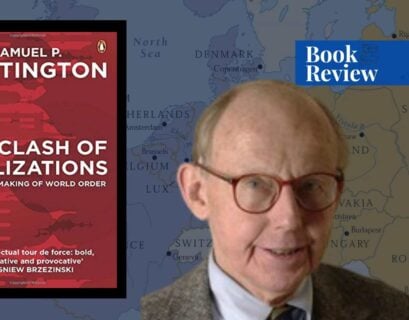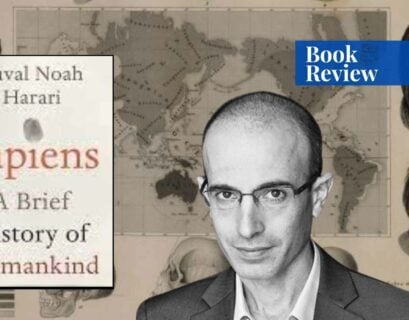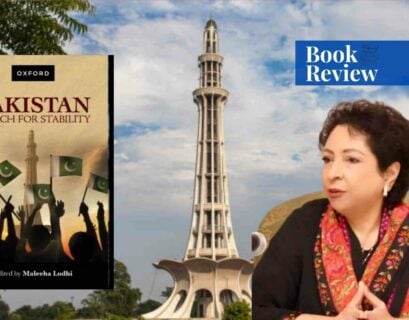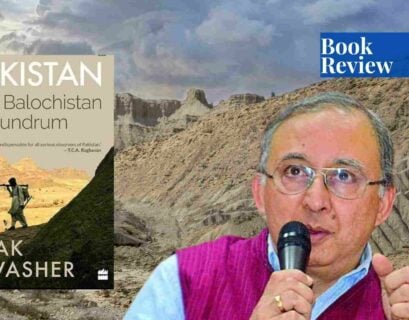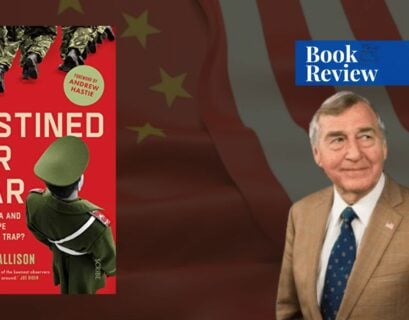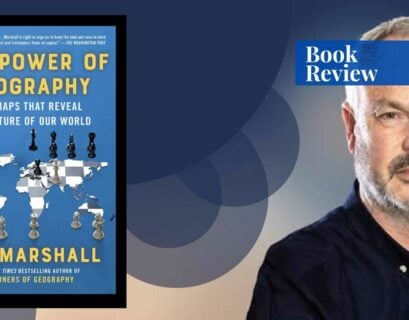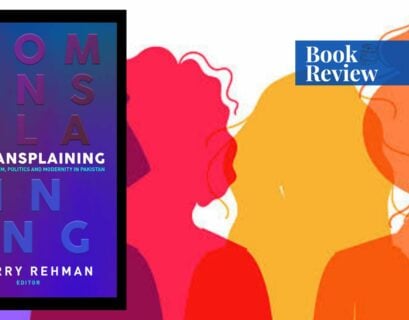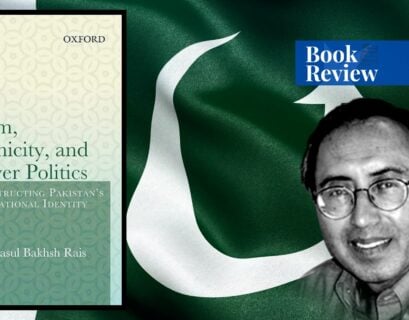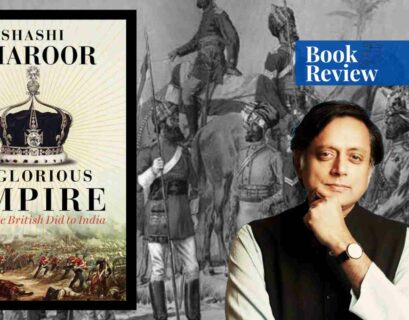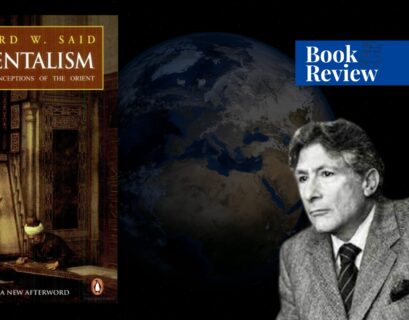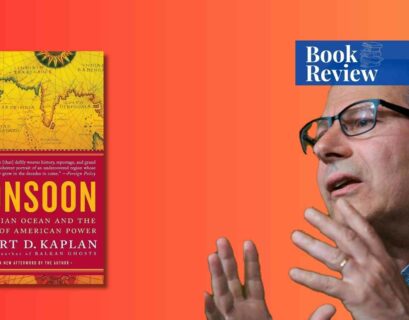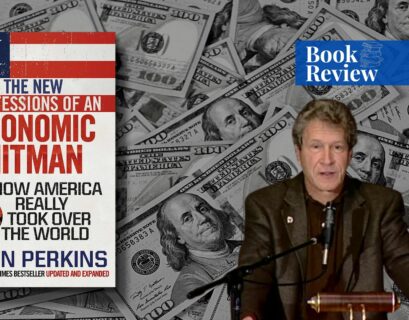“The Clash of Civilizations and the Remaking of World Order” by Samuel P. Huntington
“The Clash of Civilizations and the Remaking of World Order” by Samuel P. Huntington is considered a groundbreaking book in world politics and international relations. In the wake of the post-Cold War world, Huntington’s theory of civilizational conflict presented a different perspective on the course of future politics. The theory reshaped the international system by cementing it in eight civilizations, each with its own values and institutions.
Sapiens: A Brief History of Humankind
“Sapiens: A Brief History of Humankind” by Yuval Noah Harari takes us through a brief history of humankind, its evolution, and the revolutions that have occurred.
The author has divided the book into four major, giving detailed insight into each section. The first section of the book sheds light on the role of cognitive revolution in securing the existence of Homo sapiens.
The second and third sections of the book discuss the signficance of both the agricultural revolution and globalization.
The last part of the book highlights the scientific revolution and its impact on the lives of Homo sapiens.
Pakistan: Search for Stability by Dr. Maleeha Lodhi
Pareesa Memon outlines the accomplishments and publications of Dr. Maleeha Lodhi, a prominent figure in Pakistan’s diplomatic landscape. Her review of Dr. Lodhi’s book “Pakistan: Search for Stability,” focuses on Pakistan’s political, economic, and social challenges.
The book highlights the issues such as the disengaged youth, current account deficit, climate change, and more. It concludes with recommendations and solutions for said issues, including governance reforms, economic revival, youth engagement, and the strengthening of local governments.
Pakistan—The Balochistan Conundrum by Tilak Devasher
In “Pakistan-The Balochistan Conundrum,” Tilak Devasher analyzes the Balochistan issue and emphasizes the shortcomings of the Pakistani government. He paints a twisted portrait of pain and exclusion that the Baloch have allegedly suffered at the hands of Pakistan’s armed forces.
Arooj Saghir provides a counter-narrative by highlighting the biased statements and lack of evidence from the far-right nationalist author.
Global Governance: Why? What? Whither?
In “Global Governance: Why? What? Whither,” Thomas G. Weiss explores the concept of a world without a global government and its implications for the future. He identifies five critical gaps in global governance: knowledge, normative, policy, institutional, and compliance gaps. Although a well-written and researched book overall, Ayesha Firdous notes that it still has some shortcomings.
The Anarchy: The East India Company, Corporate Violence, and the Pillage of an Empire
‘The Anarchy: The East India Company, Corporate Violence, and the Pillage of an Empire’ by the great Scottish Historian, William Dalrymple is the story of the East India Company’s rule and plunders in the Indian Subcontinent.
William Dalrymple has a great capability to reflect on the events of European colonization in the Indian subcontinent and being a very worthy Historian and critical raconteur of historical anecdotes, he is astute in captivating the attentions of his readers. ‘The Anarchy’ is one the precedents of his remarkable work on the rise of the East India Company and its exploitation of the Indian people in a vicious way.
On Palestine by Noam Chomsky & Ilan Pappé
The book ‘On Palestine’ is a conversation between two renowned professors Noam Chomsky and Ilan Pappe which includes talks, interviews, and lectures. Both eminent personalities discuss various aspects of the Israel-Palestine conflict which gives the reader a new insight and perspective on the illegal occupation and land grab by Israel.
No Turning Back: Life, Loss, and Hope in Wartime Syria
No Turning Back: Life, Loss, and Hope in Wartime Syria by Rania Abouzeid is a poignant publication on the individual realities of Syria. The author Ayesha Firdous writes a succinct review encapsulating the essence of the book. She praises Rania Abouzeid’s dedication and bravery as the author traipsed into the warzone time and again to document the harsh truths.
The Siege of Mecca: The Forgotten Uprising in Islam’s Holiest Shrine and the Birth of Al-Qaeda
Written by Yaroslav Trofimov, the book “The Siege of Mecca: The Forgotten Uprising in Islam’s Holiest Shrine and the Birth of Al-Qaeda” was published in 2007. Trofimov aptly describes an in-depth historical context of the socio-political and religious landscape of Saudi Arabia and details the seizure of the Grand Mosque which took place in 1979. The book is a must-read if you want a neutral detailed explanation of this unfortunate takeover with a fact-based backstory.
Destined for War: Can America and China Escape the Thucydides’s Trap
Destined for War is a strategic compass for statesmen and is essential reading for students and researchers who are studying the complexities of great power politics. Allison, in this book, has given clues as to how the struggle between China and the US can end in war. The book has been a captivating exploration of the Thucydides Trap, offering profound insights into the challenges these two global powers face and the potential consequences of failing to navigate these challenges successfully. To support the claims, Alison has provided sixteen cases from the last 500 years in which a rising power challenged an existing power, of which 12 ended in war. The dynamics of the politics of the contemporary world are very different from the politics before the two World Wars because of nuclear weapons. If things are not managed diplomatically, the end of both powers could be catastrophic.
The Power of Geography
Tim Marshall, a seasoned journalist, explores the geopolitical impact of geography in “The Power of Geography.” Focusing on ten key regions, including Australia, Iran, Saudi Arabia, the UK, Greece, Türkiye, the Sahel, Ethiopia, Spain, and Space, Marshall delves into historical contexts and current challenges. He connects geography with political choices and global dynamics.
Womansplaining by Sherry Rehman
Sherry Rehman’s ‘Womansplaining’ narrates the history of the women’s rights movement, tracing its origins in the 1980s, the establishment of the Women’s Action Forum (WAF), and its opposition to the misguided Islamization project until Zia’s demise in 1988.
It also discusses the introduction of the Lady Health Workers (LHW) Program in 1994 and the ongoing challenges faced by post-millennial activism.
Islam, Ethnicity, and Power Politics: Constructing Pakistan’s National Identity by Rasul Bakhsh Rais
Islam, Ethnicity, and Power Politics by Rasul Bakhsh Rais analyzes the relationship between the issue of identity, power politics and competing ideologies in Pakistan.
Rais illustrates how Islam has been used to legitimize political power, how ethnic identities have been mobilized for political purposes, and how these dynamics have shaped the political landscape of Pakistan.
Inglorious Empire: What the British Did to India
Shashi Tharoor’s “Inglorious Empire: What the British Did to India” is a provocative and insightful analysis of British colonial rule in India.
Tharoor, the accomplished author, politician, and ex-diplomat, challenges popular narratives that romanticize and glorify colonialism by offering an honest assessment of the British Raj.
He highlights the economic exploitation, deindustrialization, famines, and political manipulation that took place under British rule in India.
Orientalism by Edward Said
Orientalism, a seminal book penned by eminent writer Edward W. Said, is renowned across the globe for its overwhelming and perceptive critique of Orientalist discourse. Edward Said has delineated the West’s contemptuous and disdainful depiction of the East (Orient) as irrational, credulous, and exotic. The book vehemently censures the prevalent stereotypes, biases, and essentializations that have sculpted the Western outlook on the Orient. He alleges that the imaginative construction of “we vs they” has fulfilled the interests of the West, providing a rationale for western imperialism, despoilment, and cultural preeminence.
Monsoon: The Indian Ocean and the Future of American Power
“Monsoon: The Indian Ocean and the Future of American Power” by Robert Kaplan is a captivating exploration of the geopolitics, history, and culture of the Indian Ocean. Published in 2010, the book seamlessly weaves together Kaplan’s personal travel experiences with strategic analysis and geopolitical insights. The title cleverly draws parallels between the region’s unpredictability and the monsoon, underscoring its significance in global power dynamics. Overall, it serves as a concise guide to understanding the past, present, and future of this crucial region
The New Confessions of an Economic Hitman
John Perkins’ The New Confessions of an Economic Hitman was published in 2004 as an unofficial sequel to Confessions of an Economic Hitman. It is a thought-provoking and eye-opening autobiography that shares the writer’s personal experience as an economic hitman. It provides an in-depth understanding of world politics and international financial system manipulations to propagate the Super Powers’ hegemony across the globe.
The book takes the readers through a journey, starting with the author’s childhood life, and how he grew into becoming an economic hitman during the ’70s and ’80s. Perkins later became a whistleblower, revealing the strategies used by the US and international organizations to lure underprivileged nations into debt traps to increase their influence across the globe.
